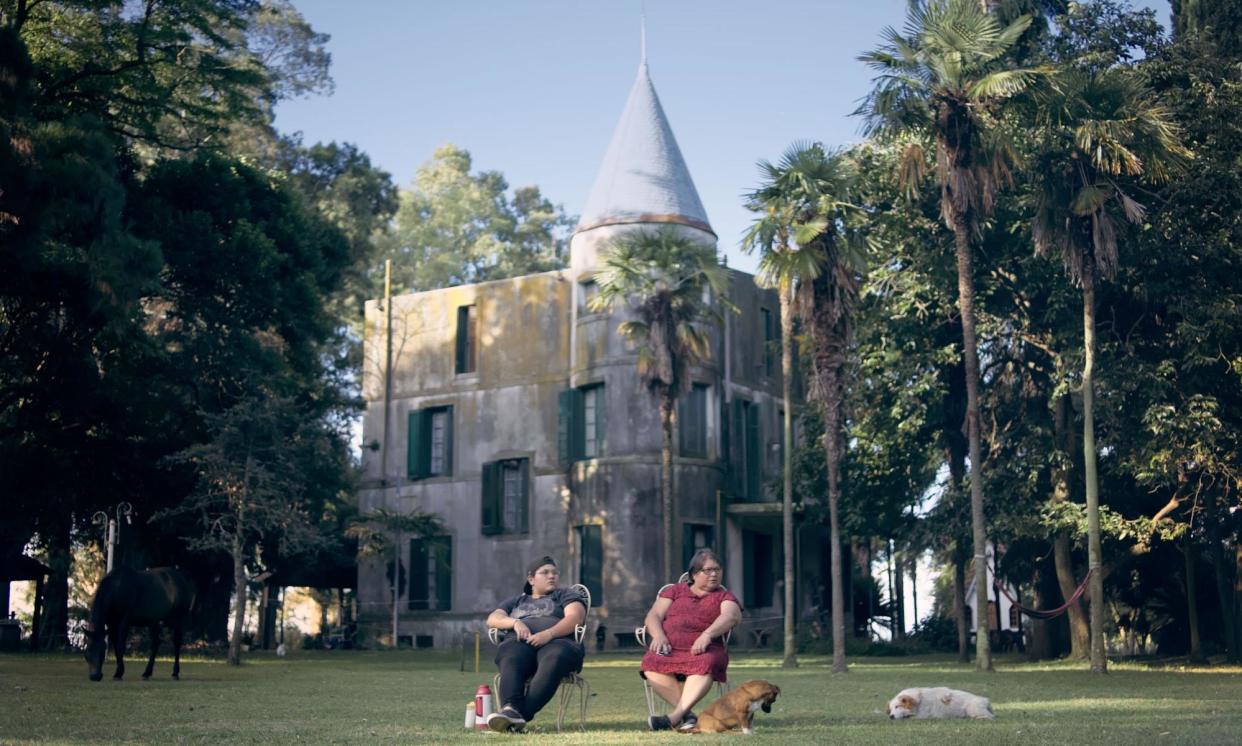Inheriting the Castle review – the fairytale gift that became a nightmare

El Castillo (The Castle) is a feature-length documentary by the Argentinian film-maker Martín Benchimol that has been renamed by the BBC for its Storyville strand as Inheriting the Castle – possibly in an attempt to bring some clarity to proceedings.
Benchimol happened across the castle – which is not really a castle but a huge manor house, albeit one with a Disney-like turret, in the middle of the Argentinian Pampas – when he was making another film, The Dread. He assumed that the Indigenous woman who opened the door to him was a servant. In fact, she was the owner.
Justina had started as a servant – the film shows her explaining to an official who has come to view the property that she began cleaning there when she was five. Because she was so young, she would often step on the newly polished floors and dirty them again. The owner – a rich socialite whose glamorous portrait still looks down from the now crumbling walls – would shout at her, Justina remembers.
Justina was left the house by her employer when she died, in recognition of her long service and the care she gave the woman through her last illness. But it appears to have been on the condition that she not sell it. And so the film becomes a meditation on love, loyalty and poisoned legacies.
Justina and her daughter, Alexia (a racing-car enthusiast who dreams of moving to Buenos Aires and training for Formula 4 glory), scratch a living there as the place falls to pieces around them. The little they earn from raising and selling a few cattle, and occasionally antiques from the house, does not finance even a fraction of the repairs necessary. There are holes in the ceilings, blown plaster everywhere and the plumbing – including the toilet – doesn’t work.
Has Justina inherited the castle, or just the right to live in it? Does she stay out of loyalty, or because the alternative is no better?
There is no voiceover, no interviews with Justina or Alexia – nothing to explain what is going on or what they think. This hands-off approach works well at first – the fairytale feel leaves plenty of space for the viewer to reflect on the strange situation. The gorgeous cinematography makes the contrast between the sweeping beauty of the landscape and the cramped lives of the women impossible to ignore. The upkeep the castle demands and the energy it sucks from its inhabitants are symbols of capitalism in microcosm.
But, after a while, this isn’t enough. Viewers can’t live on evocation alone. The sparsity of information becomes frustrating. Questions begin to crowd the piece and the mood of delicate melancholy becomes overwhelmed by the need for answers.
What does Justina get out of staying there? Has she truly inherited the castle, or just the right to live in it? Does she stay out of loyalty, or because the alternative is no better? Speaking of loyalty, did her employer do anything to earn it?
Are Alexia’s ambitions a pipe dream? Is Justina right to try to keep her at the castle, or is she stymieing her daughter’s prospects? Is the man with whom Justina is shown having many late-night calls her husband, a partner or a toxic semi-boyfriend? There seems to be no joy in Justina’s life, although she and Alexia clearly love each other. Was it sapped long before by a hard life that we are told nothing about, or is this simply the burden of old age?
More questions surface when it emerges that relatives of the late owner turn up frequently for visits, expecting Justina to wait on them as she used to. They are clearly an entitled and unlovely bunch, but quite to what degree is unclear, because we don’t know if Justina’s occupation is a temporary blip before their home is restored to them, or if they are intruding on something that is hers absolutely. We don’t know if the patriarch’s attempts to persuade Justina to add the house to the local tourist trail and raise money for repairs is helpful, or a self-interested attempt to stop the family pile from deteriorating past the point of no return.
Reading up on the documentary, it seems that “the family” may have been played by Benchimol’s own. Why? Do they represent real people who refused to appear but whose psychological pressures are an important influence on the women? Were they invented to make a point about Argentina’s rigid class system and the gulf between the haves and the have-nots?
Inheriting the Castle doesn’t give us any insight into the inner lives of Justina or Alexia; we are left lost in the woods. This is great for the fairytale vibe, but not much good for anything else.
• Inheriting the Castle aired on BBC Four and is available on BBC iPlayer

 Yahoo News
Yahoo News 
